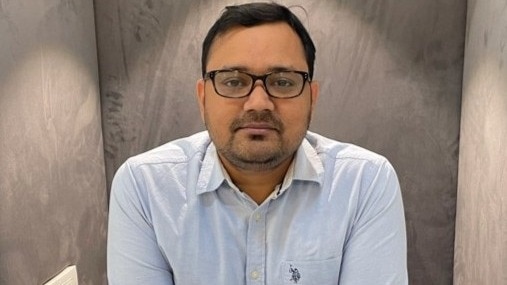Ashish Gupta, CEO and Founder of Bambinos.live, recently shared a heart-wrenching account of a job interview that left a deep impression on him — and sparked a powerful message for India’s youth.
“I met a candidate this morning,” Gupta wrote, “A simple, middle-class boy from Rajasthan. His father runs a small spare parts shop. He finished his BBA in 2019 and worked in Gujarat for three years, earning around ₹3.5 to ₹4 lakh per year. He had big dreams — to grow, earn better, and support his family.”
In pursuit of those dreams, the young man took the leap many others do — he enrolled in an MBA program at a well-known university in Bangalore, hoping to boost his salary, learn business, and strengthen his marriage prospects. “Typical mindset — ‘Ladka MBA kar raha hai,’” Gupta remarked.
But the real cost of that MBA? Almost ₹40 lakh.
- ₹18 lakh for tuition
- ₹10 lakh for living in Bangalore
- ₹8 lakh in lost income over two years
Gupta disclosed that same candidate is struggling to find a job paying even ₹4 lakh CTC. With loan pressure mounting, marriage expectations closing in, and no family financial cushion left, he is unable to take risks or consider entrepreneurial paths.
“He’s trapped,” Gupta said bluntly. “And unless a miracle job offer of ₹30-40 lakh comes his way — which is extremely rare — he’ll remain stuck in this cycle.”
What’s even more concerning is that he’s not alone. According to Gupta, out of over 200 students in the same MBA batch, only 80 received job offers. Most were under ₹6-7 LPA. Around 70 were either laid off or quit within three months. Meanwhile, the institute flaunted a ₹35 LPA placement — a claim even the mentioned student has reportedly denied.
“This is not just one story,” Gupta warned. “It’s happening at scale. We’re losing talent, energy, and dreams — and creating more job seekers, not job creators.”
Ashish Gupta’s message to young aspirants and their families is clear: don’t pursue an MBA for the wrong reasons — marriage, status, or blind hope of a higher salary. And definitely not from institutes outside the top 20.
“Instead,” he advises, “pick a skill. Go deep. Master it. Build something real. You’ll be in a far better position — financially, emotionally, and professionally.”








